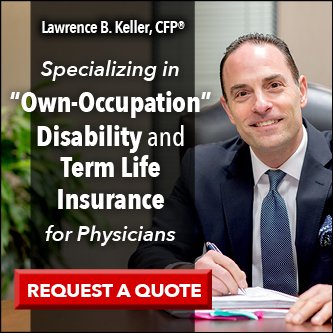Many times blog questions appear as an either/or issue, as if there were only those two choices. Often I see questions such as ‘should I pay off debt or invest?’, ‘should I save for retirement or for my kids college?’, ‘should I buy stock or bonds?’, ‘should I plant tomatoes or cucumbers?’ It is entirely OK to do both with all of these questions. These are not either/or questions. They are not mutually exclusive options.
I never hear questions like ‘should I buy a new car or go to Paris?’, ‘should I buy a big house or invest in my retirement fund’, ‘should I get the Tesla or the Ferrari?’
The bigger question is never the one they are asking. A better question is ‘am I using my money in the best way possible?’ Because before you should be asking about which car to buy, you should be asking ‘do I have the right insurance?’, ‘do we live in the right house for our income?’, ‘should we be moving to a lower cost of living area?’, ‘can we afford a new car right now?’
This comes back to the story of the professor, the jar, and the rocks. I won’t repeat it here, but the answer to the puzzle is you must put the big rocks into the jar before the little rocks. If you put the little rocks in first, you can’t get the big rocks in. Buying a house, getting life insurance, and investing for retirement are big rocks.
A physician’s income is much larger than the general population’s household income, which is on average about $60,000/year. Even the lowest paid physicians have a much healthier income than the average American. But how we use that income is what makes all the difference in how happy we are with our life or how comfortably we can retire.
It would be silly to try and make retirement plan investments if one is struggling to make debt payments. Before you start making retirement plan investments, conquer the debt struggle.
It would be irresponsible to save for your kids’ college education if you have nothing in your retirement plan. Put the oxygen mask on yourself before you help others.
We need to first step back and be sure we are asking the right questions. Saving for retirement does not need to be a sacrifice. You do not need to live the life of a pauper to save. Find an amount to regularly invest in your retirement accounts that you are comfortable with and begin there.
When someone asks me the question about saving vs. paying off debt, I ask them why they think they will not be able to do both. If both of those options are important, then they need to find a way to do them both. Find the pebbles in the spending plan that can be thrown out or made smaller so that both important things can get done. Both are more important than the two weeks you plan to spend in Europe this summer.
Are their vacations too lavish for their income? Are they spending too much money on cars? Are they house poor? These are the decisions that will harm them financially. They will not be harmed by making a decision to pay off debt vs save for retirement. Both of those options are winners.
I spoke with one couple who spends gobs of money on vacations. I said “You vacation like you are multimillionaires, but you are actually not even up to broke yet. You still have a negative net worth.” How can a person with a negative net worth justify spending that kind of money on a vacation. Vacations are for recharging your batteries. You can do that anywhere. It doesn’t have to cost $20,000 a week to recharge. You do not need a $1,000 a night hotel to recharge.
But the decision to purchase a house that is not affordable on their income is a losing decision. What about all the other things you want in life that can’t be acquired because you are paying such a large portion of your take home pay on housing. Then they may feel they are backed into a corner. Having a big house is not worth becoming house poor.
Back up and evaluate where your monthly income is spent and determine if your money is being spent where you want it to be spent or if some adjustments need to be made. Some things cost a lot of money and provide little reward. Other things cost little money and provide a great reward. Find the happy medium.
When you bring everything into the picture, and look at your entire spending, not just an isolated piece, you will find you have plenty of money to live a nice life and do all the important things you need to do. You never need to live like a pauper to scrimp and save 50% of your income for retirement. You can likely live a good life and still save a large portion of your income for the future.
For the majority of my working life, we were living on only 50% of my income. We had a nice life. And we were able to save a lot of money for the future. There was nothing we felt we missed out on. I could have easily lived on 110% of my income and my life would have been different, but it would not have been better.
An $80,000 car will not get me to work faster or better than a $30,000 car. My family could watch TV just as well in a $400,000 house as they could in a $1,400,000 house. I can get just as much relaxation on a beach in Southern California as I can at the beach in Southern France. The decisions we make in one area of spending will affect the other areas. The money I spend on vacation will not be available for paying down my debt or saving for my retirement.
Stop thinking of your money choices as either/or questions. Start prioritizing your spending so you can afford the things you really want, and cut back in the areas that don’t matter so much. You will find you have plenty of money to live a nice life and save for your eventual retirement. Those two are not mutually exclusive. Start today, because you want the time value of money working for you as soon as possible. The sooner you start, the less you actually need to save.
If debt is causing you some trouble, get a copy of my book, The Doctors Guide to Eliminating Debt and get yourself back on the right track. You do not need to live a life of perpetual debt anymore.






Great piece. Sound Horse before The Cart Wisdom
Great article and you make excellent points. I have also disagreed with the notion it has to be one or the other, live a good life now or save for retirement, when it comes to personal finance. The debt payoff vs save/invest issue is a common one I also hear. The way I did it was save for retirement at least as much as my 401K company match maxed out at and then devote every other available dime to debt payoff. Then I upped the retirement savings rate once debt was eliminated. As to living now instead of saving for old age, I have to 100% agree with you about how it’s just as relaxing on a CA beach as one in France. My used Toyota PU I bought for $1,300 got me to work for over 16 years just as well as a more expensive car and I still love driving it, now over 26 years. I never felt like I was living a deprived life while making those kinds of money smart decisions. But it does take being able to expel a luxury focused mindset to define what living a good life really means to us.
LF Tommy,
Thanks for your comments. Trying to get lots of people to think that way.
True That, Doctor!
There is always a doctor in the audience who asks, “But I want to live now, not save money for when I’m old. I might not even live that long ….”
It is wrong on so many levels that it drives me wild.
The big picture is though that doctors make so much money they can live well now and build a rich future.
Once you pay off debt and get used to living below your means the wealth accelerates. Assets produce income. What will you do with all that extra money? Invest it of course. So your savings rate goes up automatically with no sacrifice at all.
Completely agree, Cory. I recently wrote a post about something like this called the “now or later fallacy”. The idea is that people often feel like they can either live now or save for tomorrow. It’s honestly a false dichotomy because we can do both.
Thanks for the good reminder.
TPP
Wise words indeed. As a non doc who made doc type money I know it was easier for me than most to achieve wealth but I also know many friends with similar income who did not save aggressively and are still working at my current age while I’ve been retired for years. We never felt deprived. We had great vacations searching out all the waterfalls in our beautiful state for almost the same cost as staying home. Seeing incredible sights that few humans have ever bushwhacked to was as amazing as anything I’ve seen overseas. Now we can afford to go anywhere, but we still usually trek in places we can drive to because that’s half the fun.
Excellent points. Paying off debt was important to me and I prioritized it once I saw the “financial light.” When the money going to pay off debt was freed up, I used that to really put money towards investing. My compromise was that I always maxed out my retirement vehicles first before I paid extra on debt, so I was in actuality doing both.
Do that for a few years and you will soon have the ability to spend on the luxury stuff without batting much of an eye. That’s where I am at now and I am only 7 years out since I really seriously started the process.